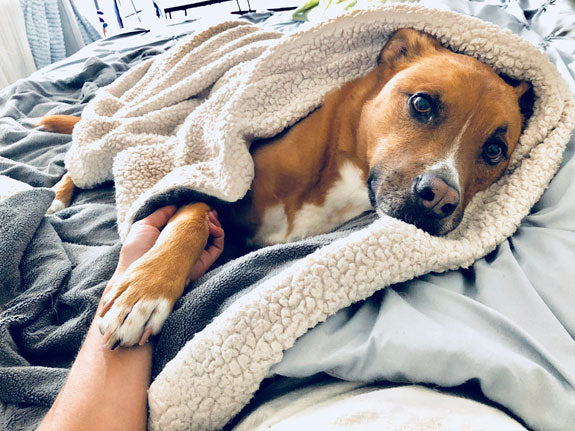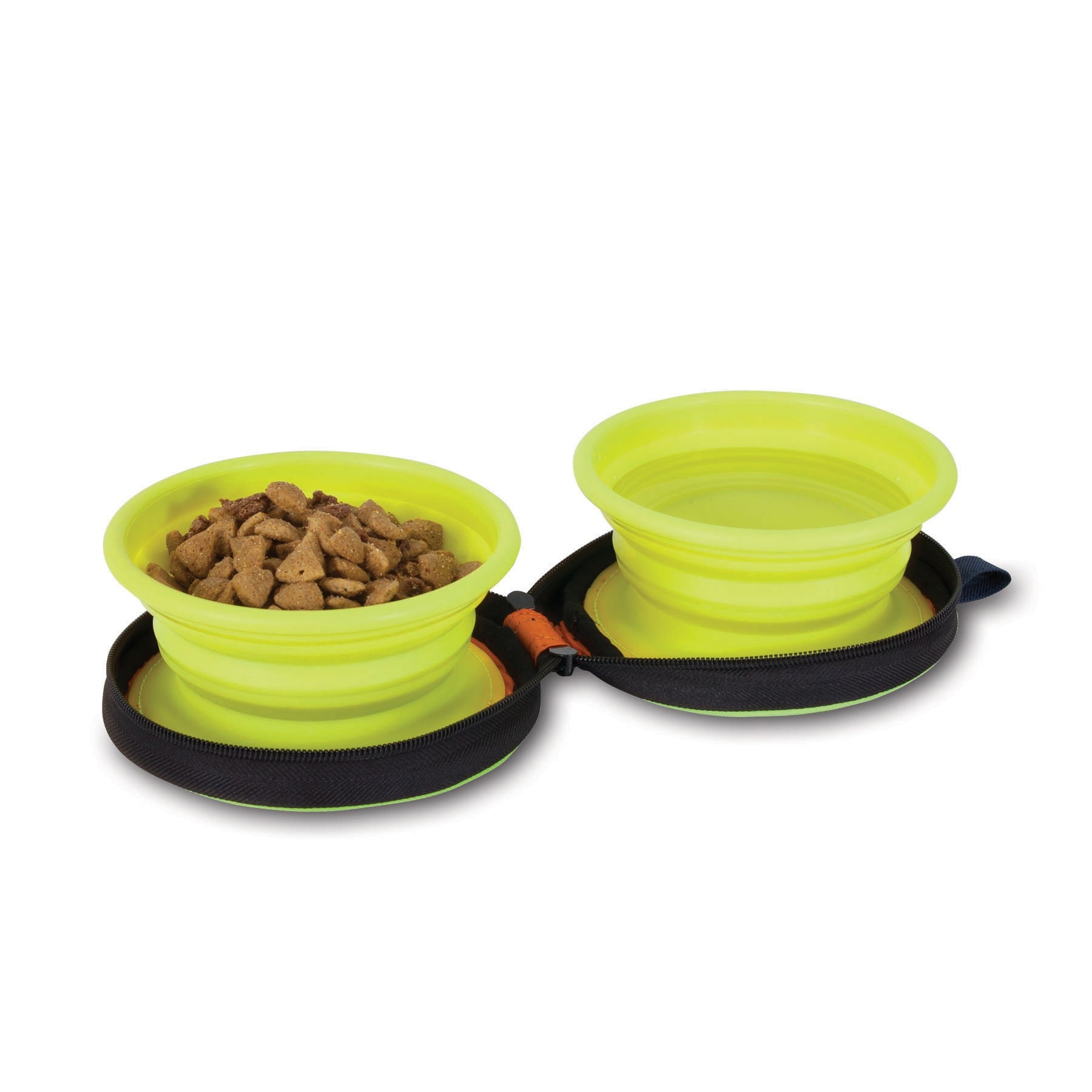Top 8 Essentials for Your Dogs First Aid Kit

Just like how we have first aid kits for our family, it is also crucial to keep at least one handy for our canine companions. Emergencies can occur at any time, whether you're out camping, facing a natural disaster, driving across the country, or even when you are just at home. When it comes to such unpredictable instances, there is no such thing as being too prepared.
It is always best to seek professional veterinary treatment when your dog is ill or gets injured seriously. But in emergencies where you can't get to a vet immediately, a well-provisioned kit is a practical investment. We've collated a list of first-aid kit essentials for you so that you can be prepared.
1. Paperwork
When your dog gets hurt and needs medical attention, you'll want to have your dog's information such as medical history, allergies, and other documents all in one organized place. An emergency vet can then provide better and safer care if they're aware of your dog's medical history. While digital copies are convenient, hard copies help when you're in a natural disaster without electricity, phone service, or the internet.
2. Necessary Tools
Tools such as tape, rubber gloves, scissors, and gauze are quite useful when your dog gets an injury. Rubber gloves are essential for any medical emergency, especially when dealing with blood or other bodily fluids. Gauze can simultaneously control bleeding and act as a temporary brace for suspected fractures. As always, you must also make sure to know how to use these tools to save your dog, or yourself, from any further injury. There are several online guides available for basic pet first aid procedures, but as always never be a substitute for proper veterinary care.
3. Comfort Items
In any emergency or high-stress situation, expect your dog to not be in the best state, physically or possibly mentally. There may be times when he can't help panicking, and having a comfort item to soothe them can be beneficial. It can be an old toy, a favorite blanket, or anything that makes your dog feel more at ease and home.

4. Towel or Blanket
A soft towel or old blanket can be wrapped around your stressed or injured dog to help calm him down and carefully assess his injury. Towels and blankets also act as a soft surface to rest your dog on for you to examine his injury carefully, especially when the ground may be too hot, stiff, or worse, covered in sharp rocks.
5. Collapsible Containers
Collapsible containers, specifically for travel food and water bowls (like those shown below), are all useful for emergencies, everyday life, and travel. Whether it be for short walks, long hikes, or road trips, a collapsible bowl to give your dog some water or food is always a good idea.

6. Small Treats
An emergency food stash is also one of the most crucial elements to include in your dog's first aid kit. If you're short on food during emergencies, having a few small treats tucked away can make a big difference and can save your dog in challenging situations.
7. Medications
If you and your dog are traveling and you're aware of any existing medical conditions that your dog has, talk to your vet about keeping a backup supply of any prescribed medications in your dog's first aid kit. Any over-the-counter medicines, vet-approved of course, are welcome, including antacids for stomach issues, flea and tick meds, and others. Always check to make sure that these aren't expired!
8. Hydrogen Peroxide
Hydrogen Peroxide is one of the most versatile things to include in your dog's first aid kit. Not only is it effective at cleaning minor wounds, but it's also useful when your dog ingests something toxic. You may be able to induce vomiting with hydrogen peroxide but always check with a poison control professional before doing so. Be sure to familiarize yourself with proper instructions beforehand, so you aren't panicking while trying to administer peroxide to your ill dog during a time of crisis.
Conclusion
Are you ready to pick up items for your dog's first aid kit? Remember to keep all these items in one bag or container so you can easily grab them and go. Many pre-assembled pet first aid kits are readily available on the market. However, we recommend going the extra mile to keep your dog safe by ensuring the aforementioned list is included.
Previous article

Next article

Related posts
View all-

3 Holiday Recovery Tips for Your Pets
Everybody needs time to recover from the holidays—even your pets. Not only will some pets want to join in on the fun, but they’ll also need a little time to recover. Even if you have a shy guy in your home who prefers staying in their bedding for cats, holiday recovery is a good idea. So, what can you do to create a soothing environment for post-holiday pet care? Read Article -

Keep your Pets Safe During The Holidays
The holidays are fast approaching, and during this beautiful yet busy time of year it is important to remember that our pets can get stressed out too. It could be that company is coming over and Aunt Petunia is not an animal lover. Or your family is rushing from event to event, shopping for gifts, and just generally busy and unavailable. The result is that Fido spends a lot more time outside or alone than normal. Sound familiar? Read Article -

5 Things Your Dog Needs for Holiday Travel
Are you traveling with your four-legged friend during the holiday season? Traveling with your dog can be fun; after all, it’s nice that you don’t have to leave them behind. Still, you should make sure to prepare. You can do some things to make the trip more comfortable for everyone, like picking up a travel kennel and dog food storage container. Read Article



